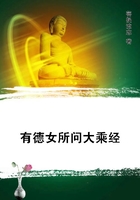Soc.And now, O Protarchus, try to divide this into three.
Pro.Indeed I am afraid that I cannot.
Soc.Do you mean to say that I must make the division for you?
Pro.Yes, and what is more, I beg that you will.
Soc.Are there not three ways in which ignorance of self may be shown?
Pro.What are they?
Soc.In the first place, about money; the ignorant may fancy himself richer than he is.
Pro.Yes, that is a very common error.
Soc.And still more often he will fancy that he is taller or fairer than he is, or that he has some other advantage of person which he really has not.
Pro.Of course.
Soc.And yet surely by far the greatest number err about the goods of the mind; they imagine themselves to be much better men than they are.
Pro.Yes, that is by far the commonest delusion.
Soc.And of all the virtues, is not wisdom the one which the mass of mankind are always claiming, and which most arouses in them a spirit of contention and lying conceit of wisdom?
Pro.Certainly.
Soc.And may not all this be truly called an evil condition?
Pro.Very evil.
Soc But we must pursue the division a step further, Protarchus, if we would see in envy of the childish sort a singular mixture of pleasure and pain.
Pro.How can we make the further division which you suggest?
Soc.All who are silly enough to entertain this lying conceit of themselves may of course be divided, like the rest of mankind, into two classes-one having power and might; and the other the reverse.
Pro.Certainly.
Soc.Let this, then, be the principle of division; those of them who are weak and unable to revenge themselves, when they are laughed at, may be truly called ridiculous, but those who can defend themselves may be more truly described as strong and formidable; for ignorance in the powerul is hateful and horrible, because hurtful to others both in reality and in fiction, but powerless ignorance may be reckoned, and in truth is, ridiculous.
Pro.That is very true, but I do not as yet see where is the admixture of pleasures and pains.
Soc.Well, then, let us examine the nature of envy.
Pro.Proceed.
Soc.Is not envy an unrighteous pleasure, and also an unrighteous pain?
Pro.Most true.
Soc.There is nothing envious or wrong in rejoicing at the misfortunes of enemies?
Pro.Certainly not.
Soc.But to feel joy instead of sorrow at the sight of our friends' misfortunes-is not that wrong?
Pro.Undoubtedly.
Soc.Did we not say that ignorance was always an evil?
Pro.True.
Soc.And the three kinds of vain conceit in our friends which we enumerated-the vain conceit of beauty, of wisdom, and of wealth, are ridiculous if they are weak, and detestable when they are powerful:
May we not say, as I was saying before, that our friends who are in this state of mind, when harmless to others, are simply ridiculous?
Pro.They are ridiculous.
Soc.And do we not acknowledge this ignorance of theirs to be a misfortune?
Pro.Certainly.
Soc.And do we feel pain or pleasure in laughing at it?
Pro.Clearly we feel pleasure.
Soc.And was not envy the source of this pleasure which we feel at the misfortunes of friends?
Pro.Certainly.
Soc.Then the argument shows that when we laugh at the folly of our friends, pleasure, in mingling with envy, mingles with pain, for envy has been acknowledged by us to be mental pain, and laughter is pleasant; and so we envy and laugh at the same instant.
Pro.True.
Soc.And the argument implies that there are combinations of pleasure and pain in lamentations, and in tragedy and comedy, not only on the stage, but on the greater stage of human life; and so in endless other cases.
Pro.I do not see how any one can deny what you say, Socrates, however eager he may be to assert the opposite opinion.
Soc.I mentioned anger, desire, sorrow, fear, love, emulation, envy, and similar emotions, as examples in which we should find a mixture of the two elements so often named; did I not?
Pro.Yes.
Soc.We may observe that our conclusions hitherto have had reference only to sorrow and envy and anger.
Pro.I see.
Soc.Then many other cases still remain?
Pro.Certainly.
Soc.And why do you suppose me to have pointed out to you the admixture which takes place in comedy? Why but to convince you that there was no difficulty in showing the mixed nature of fear and love and similar affections; and I thought that when I had given you the illustration, you would have let me off, and have acknowledged as a general truth that the body without the soul, and the soul without the body, as well as the two united, are susceptible of all sorts of admixtures of pleasures and pains; and so further discussion would have been unnecessary.And now I want to know whether I may depart; or will you keep me here until midnight? I fancy that I may obtain my release without many words;-if I promise that to-morrow I will give you an account of all these cases.But at present I would rather sail in another direction, and go to other matters which remain to be settled, before the judgment can be given which Philebus demands.
Pro.Very good, Socrates; in what remains take your own course.
Soc.Then after the mixed pleasures the unmixed should have their turn; this is the natural and necessary order.
Pro.Excellent.
Soc.These, in turn, then, I will now endeavour to indicate; for with the maintainers of the opinion that all pleasures are a cessation of pain, I do not agree, but, as I was saying, I use them as witnesses, that there are pleasures which seem only and are not, and there are others again which have great power and appear in many forms, yet are intermingled with pains, and are partly alleviations of agony and distress, both of body and mind.
Pro.Then what pleasures, Socrates, should we be right in conceiving to be true?
Soc.True pleasures are those which are given by beauty of colour and form, and most of of those which arise from smells; those of sound, again, and in general those of which the want is painless and unconscious, and of which the fruition is palpable to sense and pleasant and unalloyed with pain.
Pro.Once more, Socrates, I must ask what you mean.














